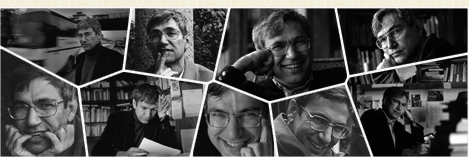Turkey sandwiched
The New Life by Orhan Pamuk
translated by Guneli Gun Faber £14.99 pp296
John Spurling
The first 100 or so pages of this novel are heavy going and may deter even those who admired Orhan Pamuk's exuberant and ingenious The Black Book (1995). The narrator, obsessed with a book and the girl who brought it to his attention, throws up his university studies and embarks on a wearisome series of bus journeys across Turkey. No doubt these travels mean more to Turks than foreigners, and it is clear that Pamuk intends his reader to be drawn into, rather than merely observe, this naive quest for revelation and redemption. The narrator's book and the reader's book are meant to coalesce, or at least to shadow one another.
But if the narrator and the book that causes him to seek a new life are to stand for every reader and every reader's idea of such a book, they cannot be particularised. Nor can the narrator's love for the girl, nor the girl herself. Vagueness and evasive mystification are essential to the enterprise and in this case nearly fatal to it. Pamuk throws in a few excitements — a mysterious street shooting and a series of bloody bus accidents — but cannot stave off the reader's mounting irritation. Only when he abandons his risky experiment in audience participation, turns his story back on its tracks, allows his narrator to emerge partly from his obsession and begins to analyse and understand its hold on him, does the real book begin to gather pace. It becomes a combination of detective-story and parable, unravelling a plot of conspiracy and counter-conspiracy among a dense tangle of cross-references. The author of the imaginary book, for instance, turns out to have been a part-time writer of children's comic books and an inspector of state railways, hence his theme of heroic quest and his emphasis on accidents in buses.
Pamuk extracts many ironies from overlapping layers of old and new. The book that obsesses his idealistic young protagonists and sets them questing for spiritual renewal was dreamt up on the basis of extracts from old master authors by an old-fashioned children's author. Its very title was first coined by Dante. Meanwhile, an equally clandestine group of reactionary elders is trying to counter ' 'the Great Conspiracy of the West" by collecting and retailing only authentic things from the Turkish past, such as flatirons, birdcages, wooden ashtrays and clay soap. This group is led by ruthless Dr. Fine, the father of one of the young protagonists, who is trying to track down and eliminate devotees of the book, which he sees as part of "the Great Conspiracy" to alienate Turks from their heritage.
The parable may be directed explicitly at Turkey, sandwiched between East and West, its town squares sporting old statues of the great moderniser Kemal Ataturk, while its people are torn between enthusiasm for the old values of Islam and their addiction to the stale lures of the consumer society, but it works well enough for the rest of us, too. Readers who persevere through Pamuk's initial confusion will find that, unlike many of the unfortunate bus drivers in the story, he is well in control, and his blend of fantasy and realism, ingenuity and observation, showing off and modest thoughtfulness, throws a powerful beam through the confusion of this odd time we live in.

